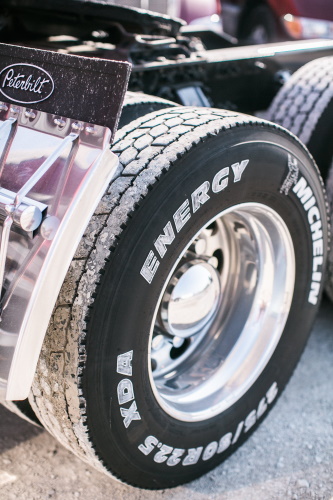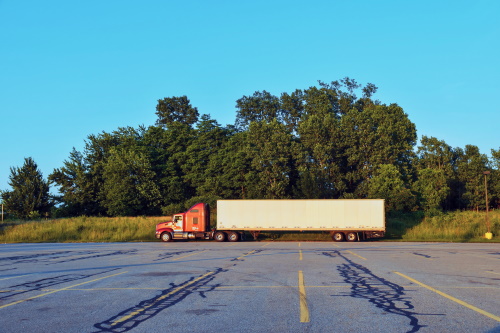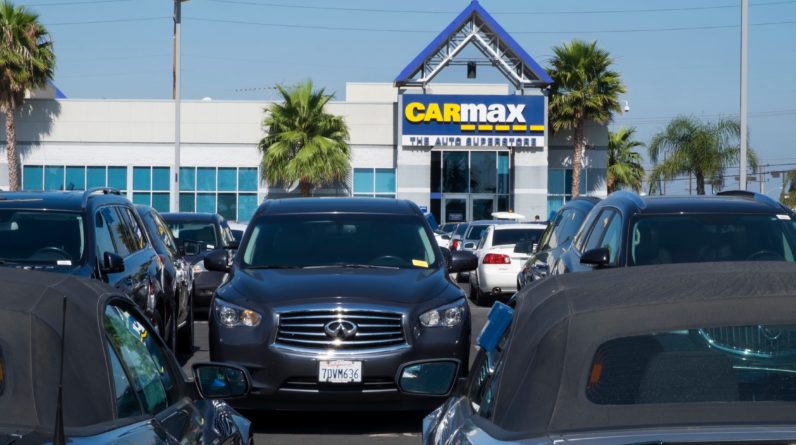If you’ve always wanted to start a trucking business, now could be the perfect time to put your plan into action. The trucking industry has an immense impact on the U.S. economy. 71 percent of the freight tonnage moved in the United States goes on trucks, and this number is only growing with time as more people are relying on larger-scale shipping to get their goods from one place to another.
If you want to join this booming industry, there are some steps that you need take before starting out: how to start a trucking business? How much money should I invest in my company? How should I price my shipments so that I can make enough profits? How do I find customers? How do I keep my trucking business organized and efficient?
These are all important questions to answer before starting your own trucking company. But don’t worry – we have all the answers for you! In this article, we will guide you through everything you need to know about starting a successful trucking business from scratch. So, let’s get started!

4 Reasons to Start a Successful Trucking Company
There are many reasons someone would want to start a small business. We’ve found 4 common reasons to start a trucking company.
1. There’s a major shortage of drivers.
The trucking field is facing a shortage of drivers. As more and more companies rely on larger-scale shipping, the transportation sector has become one of the biggest industries in America. Because there are not enough people to take these jobs, prospective employees see this as an opportunity for job growth as well as a small business opportunity.
2. There’s a need for innovation in the industry.
The trucking industry hasn’t seen much advancement in the past few decades. Because of this, people are starting new businesses to fill this market gap.
Our experts have found that there is a higher demand for drivers than ever before because major freight companies are looking for more ways to compete. If you can find a way to fill this demand and provide a better service than your competitors, you’re likely to be successful.
3. It’s recession-proof.
One of the most appealing aspects about starting a trucking company is that it’s recession-proof. Unlike building an app or website, having your own small business and fleet of trucks will never go out of style. Even when people are struggling financially, they still need to find ways to ship their goods across the country. This means that, even in the worst economy, you’ll still have customers.
4. It’s easy to start small (and scale).
Unlike some other businesses, starting a trucking company doesn’t require a lot of capital. You can start small by leasing or renting a truck and then expand your business as you grow. This also makes it easy to scale your business up or down depending on the market conditions.
Now that you know why starting a trucking company is a good idea, it’s time to learn about the basics of starting your own business.

Deciding on the Type of Carrier
The first step in starting your own trucking company is deciding what type of carrier you want to be. There are three types of carriers: private, for-hire and common.
Private carriers have their own fleet that the company owns. They receive shipments directly from the shipper and then ship it to its final destination.
For-hire carriers, also known as contract carriers or brokers, do not own their trucks – they hire drivers to deliver goods for other companies on a contractual basis.
Common carriers move freight that’s owned by others and offer services to multiple customers
Creating a Business Plan
 Now that you know what type of carrier you want to be, it’s time to create a trucking business plan. Your business plan will include everything from your company name and logo to the fees that customers can expect to pay for shipping with your trucking company.
Now that you know what type of carrier you want to be, it’s time to create a trucking business plan. Your business plan will include everything from your company name and logo to the fees that customers can expect to pay for shipping with your trucking company.
Get a CDL
The next step is getting your commercial driver’s license (CDL). This will allow you to drive a commercial truck. You can get your CDL at a local DMV office. But, be prepared. You’ll need to take some tests depending on the endorsements you require for your CDL plus you’ll need to pass a driving test.
Get Insurance
The next step is getting insurance for your business and your truck(s). Insurance will protect you and your business in case of an accident. It’s important to find a reputable insurance company that can provide you with the coverage you need. See the following page for more information on customizable and affordable business insurance plans.
Form a Business Entity
The next step is to form a company structure. This will determine how your transport company is run and who makes decisions. The three most common company structures are sole proprietorship, limited liability company (LLC) or corporation. We have a nice write up explaining the different business structures and reviewing the best online incorporation services available today.
You’ll need this information in order to open up a business bank account.
Know Your Start-up expenses
You’ll need to account for your startup costs and expenses before you can begin operating. This list will vary depending on the type of carrier that you decide to be and how many trucks, trailers and employees you plan to have.
Business operations
Now that you have all of the details in place, it’s time to get your business operations up and running. How will you manage incoming shipments? How are they going to be logged? How much storage space do you need for trailers or containers? All of these questions should be answered before opening your doors. Plus, if this is your first time running a business, it’s important to have help from professionals.
Identifying your rates per mile or Setting your rates.
Before you can start offering trucking services to other businesses, you’ll need to establish a rate structure so that customers know what they’re paying for shipping. How much will it cost them and how fast do they expect their shipment to arrive?
Know Who You’re Hauling For
While it’s important to have a diverse customer base, you don’t want to take on too many customers that are too far away from each other. This will prevent you from being able to meet deadlines and could lead to lost clients.
Finding the Right Drivers
In order for your business to be successful, you’ll need drivers that are reliable and have a good driving record. You can use online resources such as Truck Driver Jobs to find the best drivers for your business.
Save Money on Fuel
In order to be profitable, you’ll need to keep your fuel expenses low. Ways that you can save money on fuel include:
- Only driving when necessary
- Planning out routes in advance
- Using a truck stop rewards card
Manage Your Cash Flow
Trucking is a capital-intensive business. This means that you’ll need to have cash flow in order to keep your company running. Make sure you track your expenses and revenue so that you can identify any areas where you might be losing money.
Acquire Assets – Get a truck and/or trailer
One of the best ways to get started in trucking is by acquiring assets. This can include purchasing a truck and/or trailer. You can find used trucks and trailers on sites such as eBay or Craigslist.

Find a Place to Park – Lease space for parking trucks
In order for your drivers to stay productive, they’ll need to have a place to park their trucks. You can lease space for your drivers so that they have access to offices, bathrooms and other amenities.
Know the legal requirements.
Before you start your business, it’s important to know the legal requirements. This includes DOT number regulations, commercial driver’s licensing requirements and business licenses. Here is a licensing and permit checklist for starting your trucking company.
Marketing your trucking company
One of the best ways to market your company is through online advertising. You can create a website for your company aiming toward your target market and post information about your services, rates and contact information. You can also run ads on websites that cater to truckers or businesses that need freight transported.
Another great way to market your trucking business is by attending trade shows and industry events. You can meet potential customers and partners, and learn about the latest trends in the trucking industry.
You can also promote your company through social media platforms like Facebook, Twitter and LinkedIn. Make sure to post pictures of your trucks and drivers, as well as information about the services you offer.
Do You Need a Website?
Building a website for your new business is a great way to attract new customers and promote your services. Your website can include information about your company, the services you offer, rates, contact information and more.
You can create a website yourself or hire a web design company to do it for you. If you decide to create the website yourself, make sure to choose a hosting service that lets you easily manage your site and update content.
Subscribe to a load board.
A load board is a great way to find loads and connect with potential customers. It is an online directory of truckers who are looking for freight to transport. You can search for loads that match your specifications, including route, cargo type and delivery date.
Subscribe to several of these boards so that you have the most options available to you. You can also find load boards through industry associations or online search engines.
Frequently Asked Questions
Final Thoughts on How to Start a Trucking Business
If you’ve always wanted to know how to start a trucking business, now could be the perfect time. Truckers are in high demand and there is plenty of opportunity for growth as well as expansion into new areas like intermodal transport and logistics services.
The first step on your journey to becoming an entrepreneur is deciding what type of carrier you want to be- dry bulk shipper or liquid shipper for example. Once that decision has been made it’s time to get started with the paperwork, including getting your CDL license so you can operate legally within all 50 states before forming a company structure. You need liability insurance coverage too! Then account for any start up expenses before beginning operations.
Find out more about some of the various steps to starting your own business on this site.
Contents







